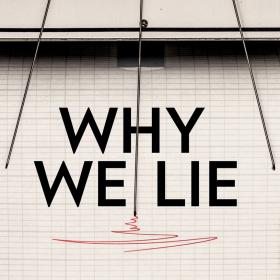 You may remember the 2009 movie The Invention of Lying starring Ricky Gervais. It was an ironic commentary on human behavior. But it does beg the question of why people lie in the first place. The June 2017 issue of National Geographic magazine addresses that subject in its cover story, “Why We Lie” by Yudhijit Bhattacharjee ( http://www.nationalgeographic.com/magazine/2017/06/lying-hoax-false-fibs-science/ ). The cover photo is at left.
You may remember the 2009 movie The Invention of Lying starring Ricky Gervais. It was an ironic commentary on human behavior. But it does beg the question of why people lie in the first place. The June 2017 issue of National Geographic magazine addresses that subject in its cover story, “Why We Lie” by Yudhijit Bhattacharjee ( http://www.nationalgeographic.com/magazine/2017/06/lying-hoax-false-fibs-science/ ). The cover photo is at left.
According to the article, we’re all pretty competent liars: “Our capacity for dishonesty is as fundamental to us as our need to trust others, which ironically makes us terrible at detecting lies.” We lie for four main reasons: To protect ourselves; to promote ourselves; to impact others (in either an altruistic or malicious way); or for unclear reasons, even to ourselves. The age group most prone to lying seems to be 13 to 17 year-olds.
Learning to lie is actually a kind of developmental milestone for children. The older kids get, the more common, and more believable, their lies become. In one study the article describes an experiment in which kids were told to guess what toy (Barney the dinosaur) was hidden under a cloth. Then the researcher left the room (“to take a phone call”) and told the child not to look under the cloth. One five-year-old girl did look, then covered up the fib by placing her hand under the cloth and saying “Ah, I know it’s Barney. Because it feels purple.”
Research has shown that people are especially prone to accept lies that conform to their preconceived notions or world views. In fact, there is scientific evidence that shows trying to disprove lies may actually strengthen the belief in them. “People are likely to think that familiar information is true. So any time you retract it, you run the risk of making it more familiar, which makes that retraction actually less effective, ironically, over the long term,” said Briony Swire-Thompson, a doctoral candidate in cognitive psychology at the University of Western Australia.
Having attended a service academy with an honor code, I personally think the world works much better on truth. But that seems contrary to human nature. I guess we just need to be skeptical and hope for the best.
